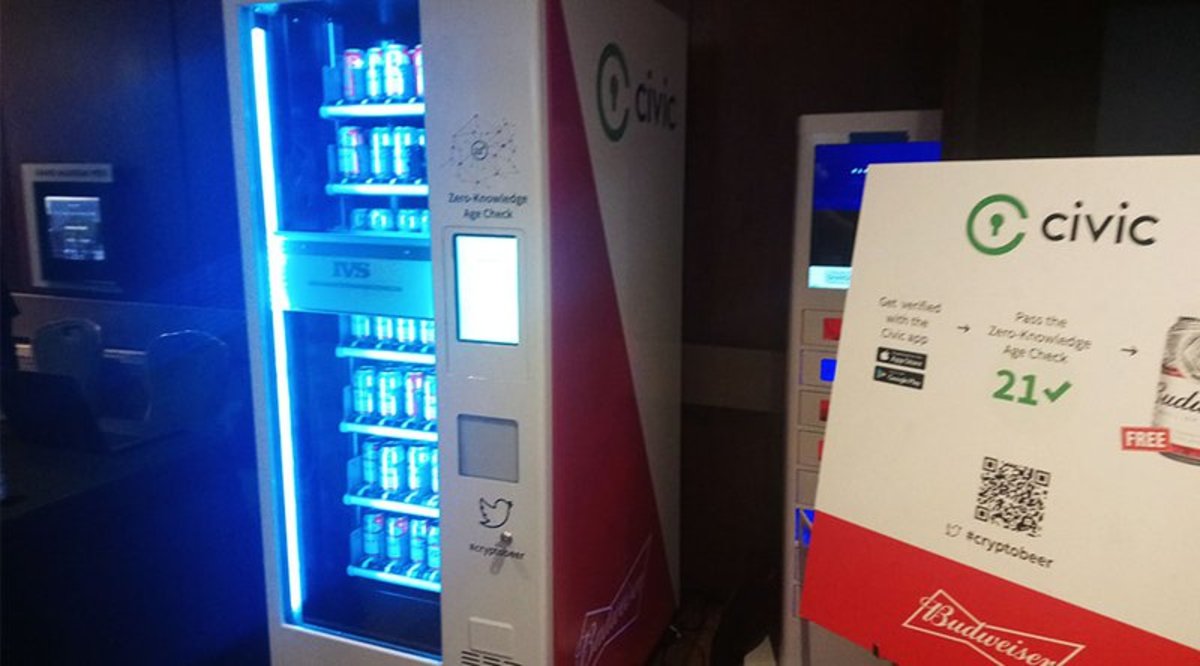
Blockchain identity verification platform Civic has emerged from Consensus 2018 with clear progress and updates for its identity attestation technology.
The project imagines a network of validators and service providers who work together to verify individual identities. A new platform user would submit relevant identity information to a validation smart contract, which the validator would then review for approval. If approved, the validator would store references to this information on the blockchain, attesting to its validity. Anytime the corresponding user needs to submit identity information to another service provider (a bank, government agency, etc.), that service provider could request the validator to cross-check the user’s information with the blockchain’s attestations to verify their identity.
In practice, such an ecosystem could streamline identity verification procedures and keep its users and participating service providers from having to go through lengthy ID checks whenever the occasion arises.
Coming out of Consensus 2018, Civic is showing that it’s taking steps to turn theory into a reality. These steps include the first iteration of its ID codes protocol alongside its revamped token economy white paper, and — the kicker — the “world’s first crypto beer vending machine.”
The idea of giving out free beer may seem kitschy at first glance, but its novelty is matched by what it means for Civic’s utility. Using the Civic app, anyone verified on the platform can scan a QR code to prove that they’re of legal drinking age. In a partnership with Anheuser-Busch, Civic unveiled the vending machine at Consensus 2018, offering anyone who used it a free brew.
To Vinny Lingham, Civic’s co-founder and CEO, the campaign isn’t some flashy promotion or an excuse to crack open a cold one. It’s a way to prove that, without relinquishing any other ID information, Civic can utilize a zero-knowledge age check: a use case that could be applied to more than just alcohol purchases.
“It’s a proof of concept,” Lingham told Bitcoin Magazine in an interview. “It could be beers, weed, pharmaceuticals — lots of things that are age restricted or are limited in access for certain people.”
This proof of concept is just one of many uses for Civic’s ID protocol, the instruments responsible for such a practical application of the technology.
Their newly released ID codes are another proven manifestation of Civic’s protocol, and according to the team, it’s the “first-ever blockchain-based verification mechanism.”
While surfing the web, anyone will be able to use these codes to verify businesses, social media profiles, team members, advisors and any individual with attested information on the blockchain per Civic’s protocol. Lingham and the Civic team built these ID codes with ICOs and cryptocurrency projects in mind, wanting to provide a digital lie detector of sorts that will allow investors to steer clear of fraudulent projects.
“One of the problems with ICOs is that all these advisors are fake, the investors are fake, the teams are fake, and so with Civic, now you can get verified,” Lingham told Bitcoin Magazine. “And you [the investor] can quickly look at the site to see whether or not the people are real.”
These ID codes are the core of Civic’s mission, the nucleus of its composition and the feature that could potentially revolutionize how we, as a society, verify information for anything from job applications to vacation planning.
“We have a ton of uses,” Lingham said. “It’s everything from verifying identities for authors, journalists, etc. … printing ID codes on your business cards, luggage tags: anywhere we want to put your ID information, or make it available to somebody, you can use a QR code from Civic.”
All of this will be facilitated using the Civic app, and what’s more, users don’t need to even own any of Civic’s tokens (CVC) to use the services.
“That’s the beauty of it. You don’t have to own a Civic token to use Civic. You just need the app.”
Still, this hasn’t kept the team from revamping its token’s utility. With the help of Newtown Partners, a blockchain investment and advisory service co-founded by Lingham, they’ve also released a fresh token-economy white paper. The team claims that using game theory mathematical models and economic incentives, the newest version reimagines Civic’s Identity Verification Marketplace. Special focus was placed on demonstrating how CVC can incentivize use and circulation without providing monetary rewards or dividends, practices that have given regulators leeway to scrutinize tokens as securities, especially those with staking rewards.
To avoid running into such regulatory roadblocks, Civic took pains to avoid any practices that might have made its token sale operate like a securities offering, such as coaxing investors with discounts and bonuses. “We looked at the way security sales are done and we did the opposite of everything they did,” Lingham explained.
Lingham believes Civic’s token model and design could serve as an example for the rest of the industry to follow. To him, the end game is a practicality and usability that doesn’t just attract big league investors and entities; it’s a platform that acts as a “consumer-focused company,” because without everyday users, the technology will never mature beyond its growing pains.
“We’re focusing on driving consumer adoption to this industry for identity and blockchain. Unless this technology gets in the hands of consumers and they can actually find practical use cases for it, it’s going to be a digital idea, not a device that gets used. So we’re very focused on engagement and building engaging experiences for users.”










